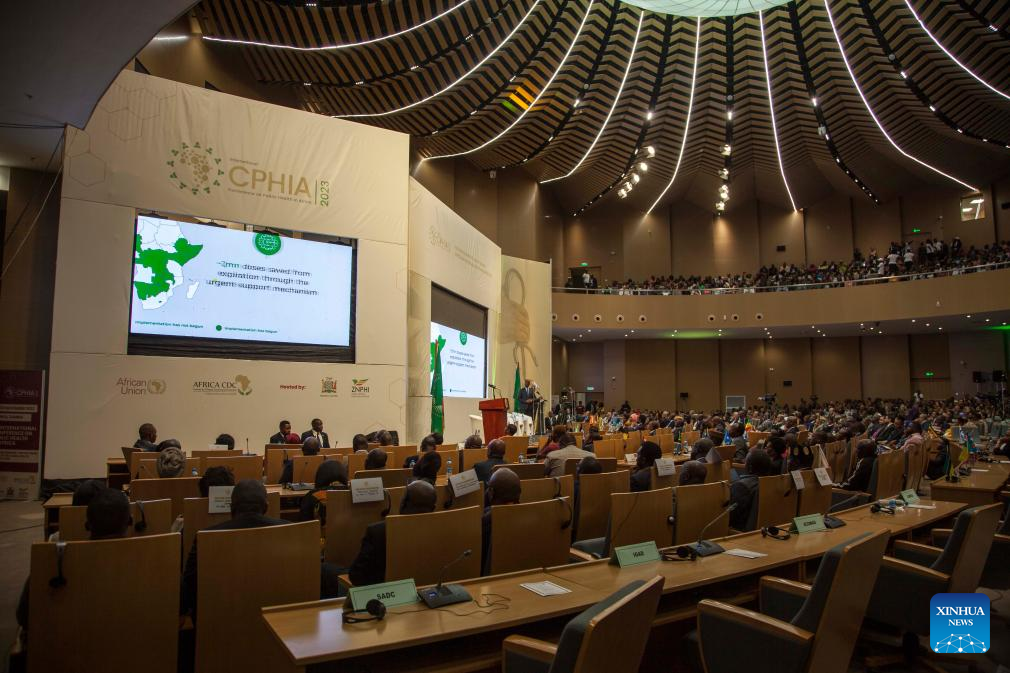L'annuaire des statistiques représente le document national de référence de partage des satistiques sanitaires au Niger. Il compile les données de routine des différents niveaux du système de santé (Publiques et privées) ainsi que les données de campagne de masse....
Functioning of the Health Economics Unit in Senegal
La Cellule d’économie de la santé (CES) a été mise en place pour assurer le suivi de la mise en œuvre de la stratégie nationale de financement de la santé et pour renforcer les analyses dans le domaine de l’économie de la santé afin de proposer des stratégies...
Review of strategic purchasing mechanisms in Senegal
In order to better coordinate its efforts towards UHC, Senegal has developed a health financing strategy, which focuses on strategic choices to improve health protection and the sustainability of financing.
Health accounts Senegal 2017-2021
Public Financial Management’s Impact on Health in Sub-Saharan Africa: A Quantitative Review
This paper, published in the Health Systems and Reform Journal, explores the correlation between Public Financial Management (PFM) quality and health outcomes in sub-Saharan African countries from 2005 to 2018. Public financial management (PFM) theory suggests that...
OECD Report on fiscal sustainability of health systems
How to Finance More Resilient Health Systems When Money Is Tight? Addressing economic challenges, the publication proposes transformative policies and improved budgetary governance for resilient health systems, aiming at fiscal sustainability. Finding sufficient funds...
Pooling Reforms to Strengthen Health Financing for Universal Health Coverage
This LHSS brief focuses on how pooling arrangements—the way countries combine funding from different sources to spread the financial risk of needing to pay for health services—can be improved to accelerate progress toward UHC.The policy brief synthesizes the existing...
Building resilient health system for universal health coverage and health security
Reviewing strategies for Resilient Health Systems. Context-specific measures like redistributing health workers, political commitment and efficient health financing strategies are vital for achieving Universal Health Coverage and health security goals.In the pursuit...
Estimating potential impact of health tax on demand for unhealthy food, beverages and on tax revenue in India
This study evaluates health taxes on unhealthy foods in India. Taxes on high-fat, sugar, or salt foods could reduce demand by 5–24%, boosting government revenues by 12–200% for health initiatives against obesity and non-communicable diseases.Foods high in fat, sugar...
The value of partnerships for Advancing Universal Health Coverage
Over half the global population lacks essential health coverage, leading to financial hardships for 2 billion people. Advance UHC, spearheaded by Australia and the World Bank, aims to tackle this issue by building robust health systems, prioritising primary care, and...
United Kingdom: Reimagining Prevention for a Healthier, More Prosperous Society
This report highlights the significance of prevention as a cost-effective and often cost-saving investment for public sector resources in the United Kingdom. Prevention, covering primary, secondary, and tertiary measures, can help to reduce ill health, improve...
Tackling the crisis of the Italian National Health Fund
Italy's National Health Fund at <6.5% GDP risks universal care. Regional spending gaps and professional shortages underscore concerns; proposed solutions aim to counteract these challenges. The planned National Health Fund (NHF) in Italy for 2024–25,...
Global Health Expenditure Report 2023
The World Health Organization (WHO) has published the 2023 global health expenditure report, which sheds new light on the evolution of global health spending at the height of the COVID-19 pandemic.Released ahead of Universal Health Coverage (UHC) Day, the report...
Challenges in international health financing and implications for the new pandemic fund
Study published in Biomed Central identifies challenges related to international financing instruments and development aid for health within the existing literature on global health governance and financing and makes recommendations for how the Pandemic Fund and the...

Accelerating Sustainable Health Financing in Africa: The Africa Leaders Meeting (ALM) Declaration in Action
African Constituency Bureau's coverage of the 3rd International Conference on Public Health in Africa, held in Lusaka, Zambia, from November 27-30 linking it with the Africa Leaders Meeting (ALM) Declaration. The 3rd International Conference on Public Health in...
